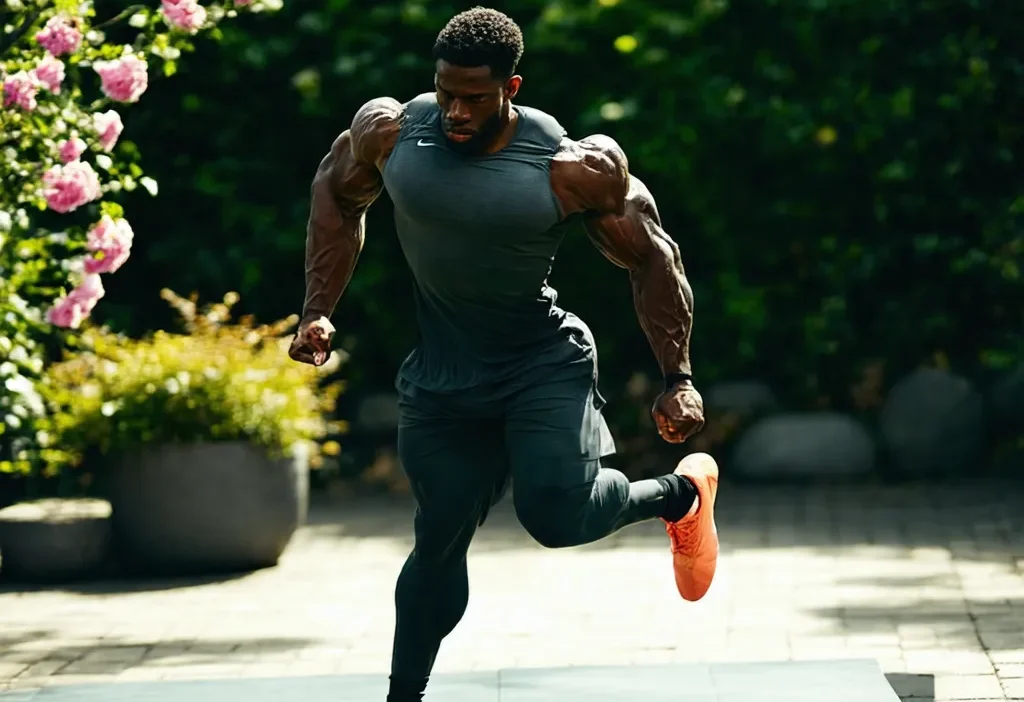Achieving Peak Physical and Mental Health in 2025
In the fast-paced world of 2025, maintaining peak physical and mental health has never been more crucial. With advancements in fitness science and wellness technologies, there’s a wealth of information available to help you achieve your health goals. But with so much noise out there, how do you separate fact from fiction? In this guide, we’ll walk you through the latest trends, expert tips, and actionable strategies to help you reach optimal health.
Understanding the Basics: What Constitutes Peak Health?
Peak physical and mental health isn’t just about looking good or performing well in sports. It’s a holistic state where your body functions optimally, and your mind is sharp, resilient, and balanced. Here are some key components:
- Physical Fitness: Strength, endurance, flexibility, and cardiovascular health.
- Mental Resilience: Emotional stability, stress management, and cognitive sharpness.
- Nutritional Balance: A diet rich in essential nutrients, hydration, and mindful eating habits.
- Sleep Quality: Restful, restorative sleep to support bodily functions and mental clarity.
- Hybrid Workouts: Combining traditional exercises with modern fitness trends for a well-rounded approach.
The Latest Fitness Trends You Should Know About
Staying ahead of the curve in fitness requires embracing new trends that can enhance your workout routine. Here are some standout trends in 2025:
1. Biofeedback Training
Biofeedback technology is revolutionizing how we approach workouts. By monitoring physiological data such as heart rate variability, muscle tension, and skin conductance, biofeedback devices provide real-time insights into your body’s responses to exercise. This allows you to fine-tune your workouts for maximum effectiveness and efficiency.
2. AI-Powered Workout Plans
Customized workout plans generated by AI algorithms are becoming increasingly popular. These programs take into account your fitness level, goals, and even genetic predispositions to create tailored routines that maximize results while minimizing the risk of injury.
3. Neuroplasticity Training
This cutting-edge approach focuses on improving brain function through specific exercises designed to enhance neuroplasticity—the brain’s ability to adapt and reorganize itself. By incorporating neuroplasticity training into your fitness regimen, you can boost cognitive performance, memory, and overall mental clarity.
Building a Balanced Fitness Routine
A balanced fitness routine in 2025 should encompass strength training, cardiovascular exercise, flexibility work, and mindfulness practices. Here’s how to structure your workouts:
Strength Training
Incorporate a mix of compound lifts (like squats and deadlifts) and isolation exercises (such as bicep curls or tricep dips). Focus on progressive overload—gradually increasing the weight or resistance—to build muscle mass and strength.
Cardiovascular Exercise
Mix up your cardio routines with activities like running, cycling, swimming, or even high-intensity interval training (HIIT). Aim for at least 150 minutes of moderate-intensity cardio or 75 minutes of vigorous activity per week.
Flexibility and Mobility
Don’t overlook the importance of stretching and mobility work. Incorporate dynamic stretches before workouts, static stretches after, and consider activities like yoga or Pilates to improve overall flexibility and reduce injury risk.
Nutrition: The Foundation of Peak Health
Your diet plays a pivotal role in achieving peak physical and mental health. Here are some nutrition tips for 2025:
Focus on Whole Foods
Prioritize whole, unprocessed foods like vegetables, fruits, lean proteins, healthy fats, and complex carbohydrates. These nutrient-dense foods provide the energy and building blocks your body needs to function optimally.
Incorporate Superfoods
Superfoods like blueberries, kale, avocados, and fatty fish are packed with antioxidants, vitamins, and healthy fats that support overall health. Make them a regular part of your diet.
Stay Hydrated
Water is essential for every bodily function. Aim to drink at least 8 glasses of water daily, and more if you’re active or in a hot climate. Consider adding electrolytes to replenish lost minerals during intense workouts.
Mental Health: The Often-Overlooked Aspect
Just as important as physical health is mental well-being. In 2025, mental health is gaining the attention it deserves, with a growing emphasis on mindfulness, stress management, and emotional resilience.
Mindfulness and Meditation
Practicing mindfulness or meditation for just 10-15 minutes daily can significantly reduce stress levels and improve focus. Use apps like Headspace or Calm to get started.
Emotional Resilience Training
Become more adept at handling life’s challenges by practicing emotional resilience. This involves reframing negative thoughts, developing problem-solving skills, and building a strong support network.
Sleep: The Cornerstone of Recovery
Quality sleep is essential for both physical and mental recovery. In 2025, prioritize sleep hygiene with these tips:
- Stick to a Consistent Schedule: Go to bed and wake up at the same time every day, even on weekends.
- Create a Relaxing Bedtime Routine: Engage in calming activities like reading or taking a warm bath before bed.
- Optimize Your Sleep Environment: Keep your bedroom cool, dark, and quiet. Invest in a comfortable mattress and pillows.
Maintaining Motivation: Tips for Staying on Track
Motivation can wax and wane, especially when working toward long-term health goals. Here are some strategies to keep you inspired:
- Set Realistic Goals: Break your larger objectives into smaller, achievable milestones.
- Track Your Progress: Use a fitness journal or app to monitor your workouts and improvements over time.
- Reward Yourself: Celebrate achievements with non-food rewards like new workout gear or a relaxing spa day.
- Stay Accountable: Partner with a workout buddy or join an online fitness community to keep yourself motivated.
Conclusion: Achieving Peak Health in 2025
Achieving peak physical and mental health in 2025 requires a holistic approach that combines balanced nutrition, regular exercise, mindfulness practices, quality sleep, and consistent motivation. By incorporating these guidelines into your daily life, you can unlock your full potential and enjoy a vibrant, active lifestyle.
Bonus Tip: Consult with Professionals
If you’re unsure where to start or have specific health concerns, consider consulting with a certified fitness trainer, nutritionist, or therapist. They can provide personalized guidance tailored to your needs and goals.





